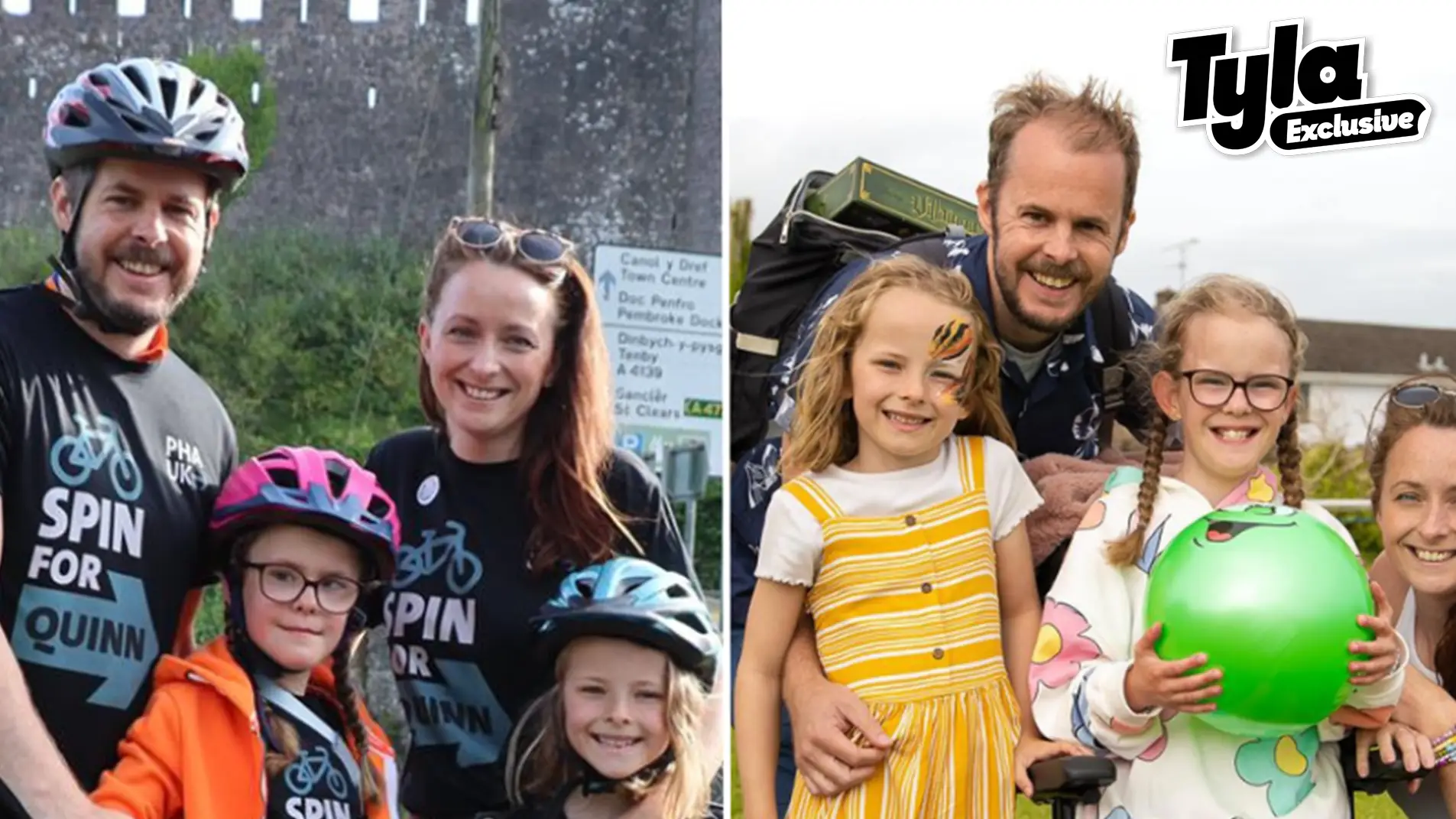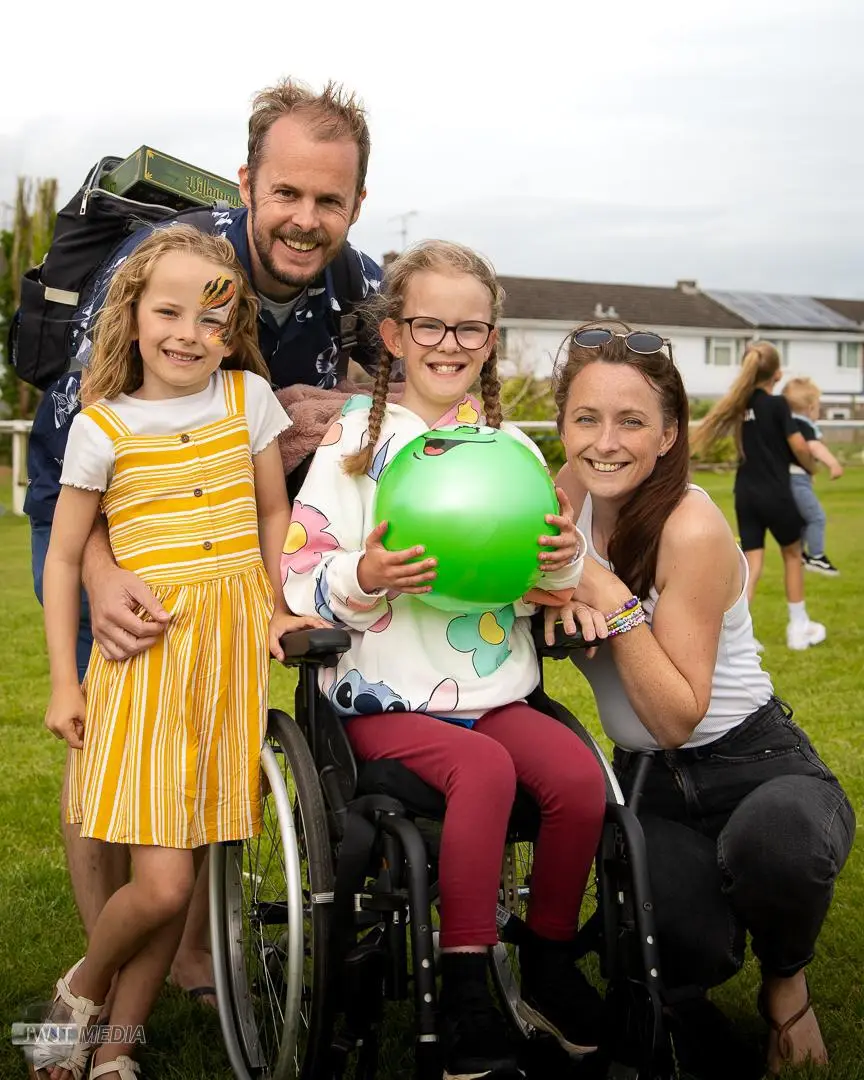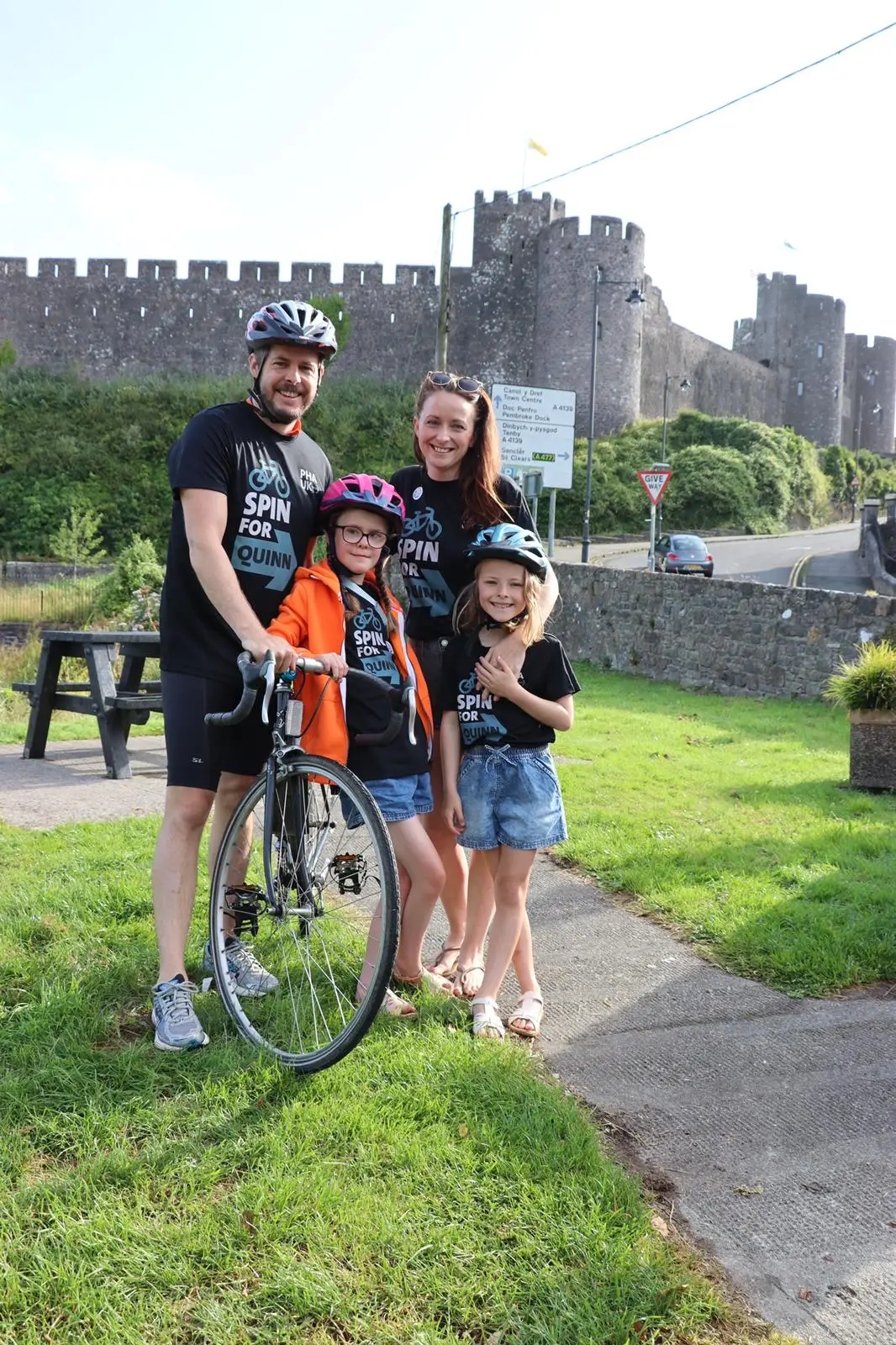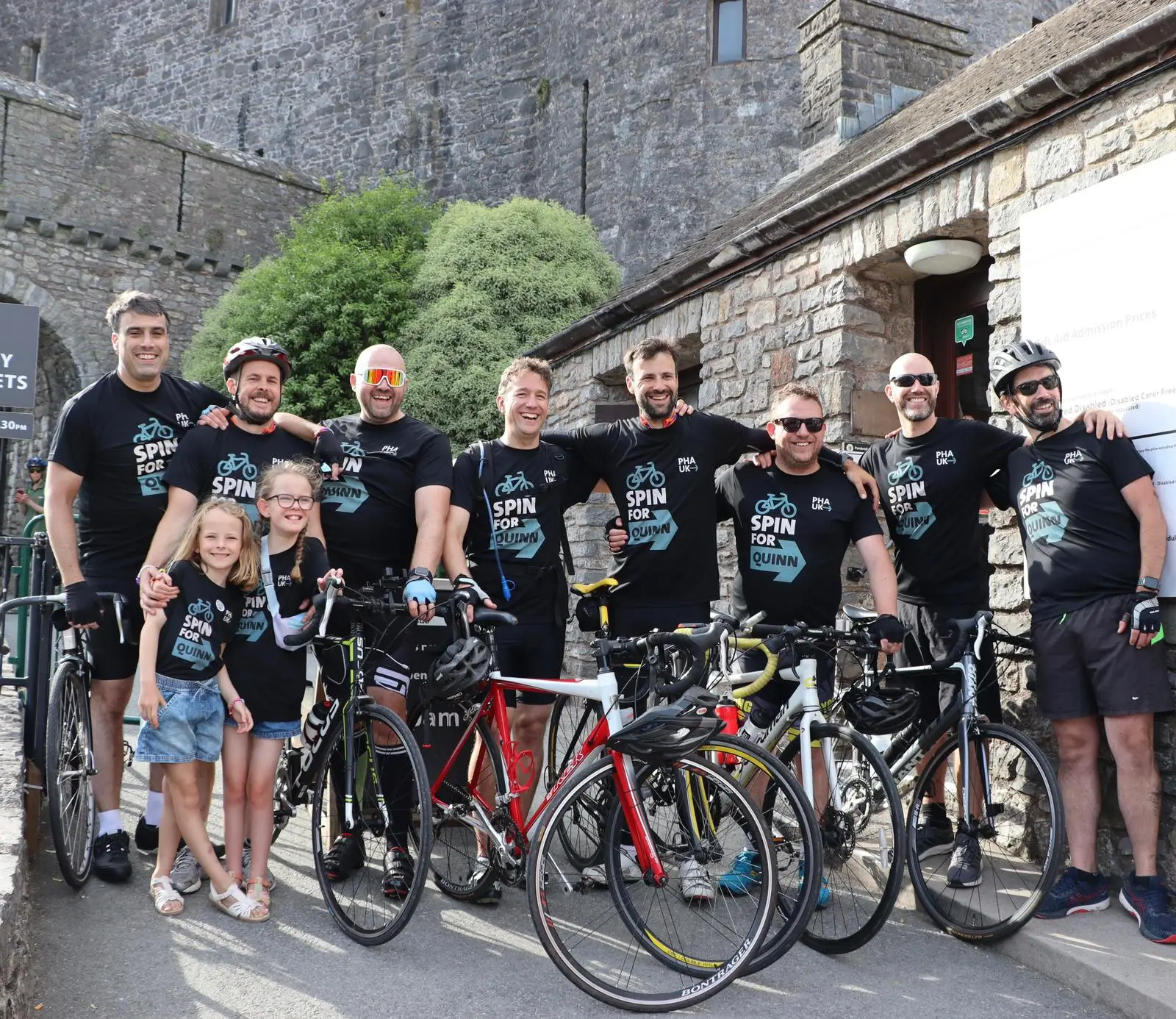
The dad of an 11-year-old girl with a life-threatening illness has shared the warning signs that led to her diagnosis, after it was initially mistaken for asthma.
Quinn Cattermole, from Gloucestershire, was diagnosed with a rare condition known as pulmonary hypertension (PH) at the start of this year.
PH is a serious condition characterised by high blood pressure in the vessels that supply the lungs.
This makes it harder for the right side of the heart to pump blood through the arteries. Because of this, the heart has to work harder, causing it to become weaker.
Advert
For Quinn's parents, Jamie and Anna Cattermole, their daughter's condition came as a 'complete shock' after doctors initially believed the symptoms she had been experiencing were down to asthma.

Explaining what happened in the years and months leading up to Quinn's diagnosis, Jamie told Tyla: "Quinn was born very early at 25 weeks and six days. She was only one pound when she was born and we spent months in neo-natal intensive care (NICU).
"We got through that and when she was four, she stopped needing any medical intervention at all."
Although Quinn had previously needed regular check-ups and often struggled with her lungs if she had a virus, over the next four years, she continued to thrive.
But when she turned eight, Jamie and Anna noticed some changes in her behaviour.
"From age eight, we noticed she started puberty early, so we started seeing a consultant," said Jamie.
"Over the next two years, she stopped wanting to go on her scooter, she would ask me to carry her up the stairs to bed and then a year ago, we noticed her lips and fingertips turning blue.
"It gradually got worse to the point where she would struggle to walk at the same pace as her friends.
"The doctor assumed it was an asthma-related because - after all the issues she had when she was a baby - it would have been rare for her lungs to get better, as they had, and then go worse again."

Quinn's condition continued to worsen, and at an appointment with her consultant in January, Jamie and Anna pushed for doctors to check her blood oxygen level with a saturation test.
This is carried out with a small device called a pulse oximeter, which works by clipping onto a finger.
"At the appointment, they didn't have a children's sized oximeter, but they used an adult one, which measured her levels at 70 percent," said Jamie.
For most people, a reading of between 95 and 100 percent is considered normal, meaning Quinn's levels were drastically low.
"The doctor didn’t believe it, but he rang through to a different hospital where they had more equipment."
After Anna and Quinn arrived at the hospital, a nurse who was looking after her immediately noticed that her fingers looked clubbed.
'Clubbed' fingers refers to the appearance of the fingertip. The tip can appear to be bulging or discoloured, while the nail can curve downwards.
Clubbing often indicates problems with your lungs, heart or digestive system.
"That observation led to the nurse having permission to do an echo on Quinn," explained Jamie.
An echo - also known as an echocardiogram - is a type of ultrasound scan of the heart and surrounding blood vessels.
Following the echo, Quinn was immediately diagnosed with PH.
"It was a shock, Anna knew more than me, and I could tell she was scared," said Jamie.
"We knew a bit about it because when Quinn was born she had a form of it, that was correctable.
"They can’t say for sure whether it’s linked to her being premature - hers is Type 1, which essentially means there's no known cause."
Two days after her diagnosis and Quinn was taken into intensive care.
"She was very unwell and we were very lucky not to lose her," said Jamie.
"One doctor, who had been transferred from Great Ormond Street, changed Quinn's oxygen therapy, which made a huge difference.
"She started to respond to the other medicine and became strong enough to be airlifted to London, where she was admitted into Great Ormond Street."
Quinn was in hospital for three weeks before she was able to return home. She is now receiving treatment through a Hickman line, which has vastly improved her symptoms.
But doctors aren't sure how long this will last.
"I think it's a case of, eventually the treatment will stop relieving her symptoms. When she was in intensive care, they said it was unlikely she would survive another 10 years.
"However, she has improved since then, but they're reluctant to give any timescales.
"She has a pump that gives her medicine and the longest one that's lasted in a patient has been nine years. So, eventually she will need to have that replaced, but to do that she would need a general anaesthetic which is extremely dangerous in a person with heart issues.
"We have to be really careful that the line doesn't break or, if an infection arises, she may need another one putting in.
"It's only me and Anna who are trained to do this, so we can never be away from her - not that we would ever want to be, because we love her and she's been so ill and we don't want to miss anything with her. It's these things you have to juggle."
Since Quinn's diagnosis, Jamie and Anna - as well as a group of their friends who call themselves 'the committee' - have been working tirelessly to raise funds for the charity, Pulmonary Hypertension Awareness UK.

"The first thing we did was a bike ride from Pembroke Castle around nine other castles," Jamie recalled.
"Then the next day, six of our friends had organised a festival at a rugby club. There was over 1,000 people, with others ringing up to offer their services. So many people came and they want to do it again every year.
"They put this amazing day on and raised £6,000 for PHA. Meanwhile, the vendors also donated some of their profits.
"It was really surreal seeing everyone there for your daughter, but it also reminds you of how serious the situation is."
Jamie was also able to recreate their original ride on an exercise bike in the foyer of their local Asda.
Meanwhile, the group are planning on cycling from Bristol Royal Hospital to Great Ormond Street next year.
"I think we’ve settled on doing that next. She was diagnosed in Bristol and helicopter delivered to Great Ormond Street, so it would be nice to finish there.
"It's 140 miles over two days and most of it is along the river."
Jamie, Anna and their friends have managed to raise almost £18,000 so far.
You can donate to their crowdfunding page here.